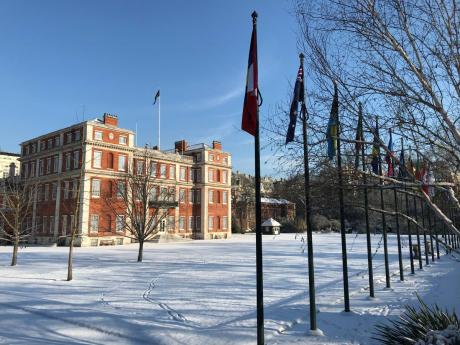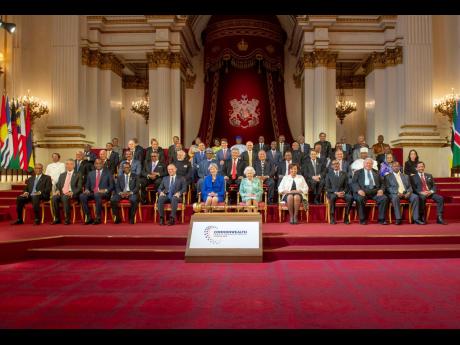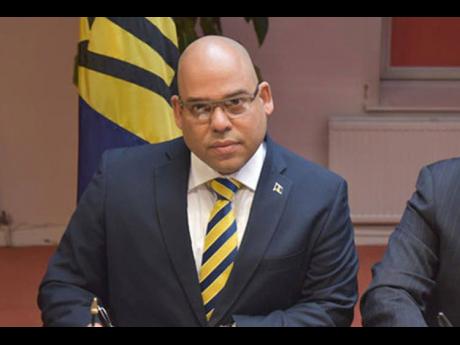Guy Hewitt | A time for change in the Commonwealth
Given the significant decline in resources and the questioning of the relevance of the Commonwealth Secretariat, a cloud of uncertainty covers the twice-postponed Commonwealth of Nations summit taking place in Kigali, Rwanda, the week of June 20.
The Commonwealth Heads of Government Meeting (CHOGM) will also be affected by a personally embattled outgoing chair-in-office, along with the questioning of the human rights record of the host and incoming chair.
As Prince Charles begins to acclimate to his future role as Head of the Commonwealth, many are focused on the likely change in organisational leadership given the heated campaign for the post of Commonwealth Secretary General.
THE CONTEXT
Despite its colonial origins, the Commonwealth has been able to refute claims of being a ‘colonial club’ yoked to Britain. Its most acclaimed role in the anti-apartheid struggle is testimony to this. Mozambique’s joining of this ‘family of nations’ followed by Rwanda signalled that membership is more about shared values than a shared history of Empire.
Notwithstanding, the Commonwealth remains at a crossroads, its presence and purpose unknown or ambiguous to most of its citizens and many of its member states ambivalent about its current and future role. If the Commonwealth is not just to merely survive but thrive, urgent action is needed.
Despite mechanisms including the Commonwealth Ministerial Action Group (CMAG) to ensure adherence to the upholding of fundamental political values – democracy, rule of law, and good governance – the organisation has come under sharp criticism for its ambivalence in acting. While Fiji, Nigeria, and Zimbabwe among others, were suspended for violations, critics have pointed to an overreliance on peer pressure and moral suasion. More recently has been the charge of overlooking human rights abuses, particularly sexual orientation, specifically anti-LGBTQ+ laws.
THE COMMONWEALTH NETWORK
While the Commonwealth Secretariat has become synonymous with the Commonwealth, its network actually consists of three intergovernmental and over 80 professional and civil society organisations, the latter’s linkages possibly more robust than those within governmental spheres.
Notwithstanding, the Commonwealth Secretariat has, at best, paid lip service to creating effective synergies and partnerships within this Commonwealth to coordinate strategies, plans, and programmes, or to maximise visibility to ensure an appreciation for the role and value of the Commonwealth.
To a similar extent, the Commonwealth Secretariat failed to reposition itself as an interregional hub for the burgeoning regionalism (Caribbean Community, Pacific Island Forum, Southern African Development Community, etc) that now dominates the multipolar global order. With a diverse global membership, the Commonwealth is in a unique position to facilitate an interface of these regional alliances seeking to consolidate regional social, cultural, economic, and political security.
To ensure continued relevance, the Commonwealth’s base must be decentred from London and move beyond high-level gatherings and sparse technical assistance to become a meaningful coordinating organisation for its members states and their regional groupings.
HEAD OF THE COMMONWEALTH
The recent comments by Prince William suggesting that he doesn’t mind not being head of the Commonwealth and that he believes tht it may be led by someone other than a member of the Royal family was received by some as inconsistent with the Queen’s commitment as head of the Commonwealth. I disagree.
I support republicanism in Barbados and the wider Commonwealth as a symbol of self-determination, which I presume is Prince William’s perspective, however, in 2018, I recognised and acted on the existential threat to the Commonwealth if the Crown passed without succession to the headship being resolved. While not a hereditary role, I am acutely aware of the challenges, given the size and diversity of the Commonwealth, in trying to democratise this role.
The Commonwealth Secretariat and the Commonwealth Secretary General
Given the direct relationship with heads of government, the secretary general of the Commonwealth Secretariat is the de facto leader of the Commonwealth ‘family.’ As such, it is imperative that the person in this role effectively discharges the duties and functions of this high office with vision, efficiency, responsibility, and integrity.
Following a plethora of ad hoc organisational changes, the Commonwealth Secretariat has become subject to intense criticism, much of it publicly, for a lack of transparency and accountability and a weak institutional structure. Concerns have also been raised about the lack of clarity of its programmes and the variable quality of work.
Members have conveyed their dismay over this situation by slashing their funding of the organisation, a gesture that I interpret as a diplomatic vote of no-confidence.
It is with dismay that I have been forced to reconcile myself to the reality that on the watch of the first female secretary general, someone I like personally and who shares West Indian roots, the fundamental values that underpin the Commonwealth have been further trampled upon.
To be fair, while this did not just start, there is a need to say that enough is enough. Good governance must not be just a concept but a lived reality. This is about more than the future of an individual, but the survival of an institution.
I hope that heads will address this situation by giving serious consideration to those vying for this crucial office, specifically the candidate for Jamaica.
However, this should not be a situation of change for change’s sake. Heads must ensure that there is an enabling environment to ensure that the Commonwealth, coordinated through the secretary general, is able to meet and realise the aspirations and expectations of its members.
Having created a bureaucratic monster by establishing the post of secretary general exclusively accountable to them, action is urgently required by Heads to create new governance systems that ensure that all officers and organisations within the Commonwealth act in a manner consistent with its charter.
While the secretary general must ultimately be accountable to Heads, between summits there is need for an ongoing process of good governance. This should be exercised by a council of ministers, possibly foreign ministers, and further by a board of governors and its relevant committees between ministerial meetings.
In one of her past speeches to Heads of Government, the Queen cautioned that we must not take the continued existence of the Commonwealth for granted. I interpreted this as a regal acknowledgement, albeit skilfully worded, that continuing along the present path of descent and decline may prove fatal for the Commonwealth. Something must be done if we are to guarantee the Commonwealth’s survival. This is the time for action.
Guy Hewitt is the former High Commissioner for Barbados to the UK, and has worked with four Commonwealth Secretaries-General. He is currently a senior research fellow at the Institute of Commonwealth Studies at the University of London. Send feedback to columns@gleanerjm.com



